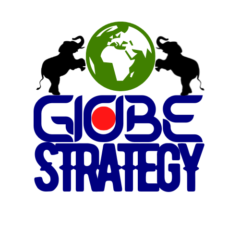A list of films that signpost you to key topics in International trade and global business can be viewed on Introglobalstudies.
1. The deceptive promise of free trade
“When it comes to global trade, it would seem that trickery, threats and deception are the order of the day – yet all this takes place largely beyond the reach of the public eye. Donald Trump has made “America First” his agenda and rallying cry. Along with aiming sharp criticism at global export champion Germany, Trump has also introduced punitive tariffs and warned of further measures. Will this fresh wave of protectionism lead to economic isolationism and threaten global free trade? And what about those for whom free trade’s promise of prosperity increasingly rings hollow? Around the world, many people have come to regard themselves as the losers of globalization. If the true winners of free trade and globalization are not ordinary citizens, has the time come to revise the liberal orthodoxy of free trade? This documentary visits Germany, Switzerland, the United States and Cameroon to explore these issues by way of some everyday examples, including the trade in onions, floor tiles, and bicycles.”
Tag: academic theory
theories. academic frameworks. articles. blogs and signposts to other content.
Global Luxury Travel Market Set to Grow by $1.2 Billion
“Business wire tudy identifies the trending sports tourism as one of the prime reasons driving the luxury travel market growth during the next few years. Also, growing demand for multigenerational and micro trips, and higher acceptance of online travel agencies will lead to sizeable demand in the market”.
Read more on Business Wire
The Eclectic Paradigm or OLI Framework
The eclectic paradigm, also known as the OLI Model or OLI Framework (OLI stands for Ownership, Location, and Internalization), is a theory in economics.[1][2] It is a further development of the internalization theory and published by John H. Dunning in 1979.
- Ownership advantages[1][2] specific advantages refer to the competitive advantages of the enterprises seeking to engage in Foreign direct investment (FDI). The greater the competitive advantages of the investing firms, the more they are likely to engage in their foreign production.[5]
- Location advantages [6][2] Locational attractions refer to the alternative countries or regions, for undertaking the value adding activities of multinational enterprises (MNEs). The more the immobile, natural or created resources, which firms need to use jointly with their own competitive advantages, favor a presence in a foreign location, the more firms will choose to augment or exploit their specific advantages by engaging in FDI.[5]
- Internalization advantages[2] Firms may organize the creation and exploitation of their core competencies. The greater the net benefits of internalizing cross-border intermediate product markets, the more likely a firm will prefer to engage in foreign production itself rather than license the right to do so.[5]
The RBV and competitive Advantage.
The Resource Based View
Check out Collis & Montgomery’s HBR take on the Resource Based View.
Global Recessions
This paper traces a history of Global Recessions .
The world economy has experienced four global recessions over the past seven decades: in 1975, 1982, 1991, and 2009. During each of these episodes, annual real per capita global gross domestic product contracted, and this contraction was accompanied by weakening of other key indicators of global economic activity. The global recessions were highly synchronized internationally, with severe economic and financial disruptions in many countries around the world. The 2009 global recession, set off by the global financial crisis, was by far the deepest and most synchronized of the four recessions. As the epicenter of the crisis, advanced economies felt the brunt of the recession. The subsequent expansion has been the weakest in the post-war period in advanced economies, as many of them have struggled to overcome the legacies of the crisis. In contrast, most emerging market and developing economies weathered the 2009 global recession relatively well and delivered a stronger recovery than after previous global recessions.
Citation
“Kose, M. Ayhan; Sugawara, Naotaka; Terrones, Marco E.. 2020. Global Recessions. Policy Research Working Paper;No. 9172. World Bank, Washington, DC. © World Bank. https://openknowledge.worldbank.org/handle/10986/33415 License: CC BY 3.0 IGO.”
Trade barriers
Search for all the trade barriers reported to DG TRADE, which affect EU exports to non-EU countries here.
Types of International Strategies
Multinational corporations choose from among three basic international strategies: (1) multidomestic, (2) global, and (3) transnational. These strategies vary in their emphasis on achieving efficiency around the world and responding to local needs.
International Trade: Theory and Policy
Traditionally, intermediate-level international economics texts seem to fall into one of two categories. Some are written for students who may one day continue on in an economics PhD program. These texts develop advanced general equilibrium models and use sophisticated mathematics. However, these texts are also very difficult for the average, non-PhD-bound student to understand. Other intermediate texts are written for noneconomics majors who may take only a few economics courses in their program. These texts present descriptive information about the world and only the bare basics about how economic models are used to describe that world.
This text strives to reach a median between these two approaches
World Regional Geography: People, Places and Globalization
World Regional Geography takes a regional approach to globalization and world geography. The textbook was designed to provide accurate and current information regarding world regional geography in an easy-to-read format.
